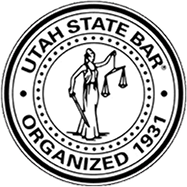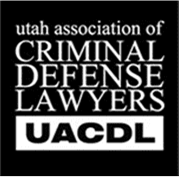Drug possession charges can have profound consequences, affecting your freedom, reputation, and future opportunities. Understanding how Utah handles these charges is essential for anyone facing such allegations or seeking to support a loved one. This blog provides a comprehensive overview of Utah’s drug possession laws to help you grasp the legal landscape.
Utah’s Legal Framework for Drug Possession
In Utah, drug possession is governed by the Utah Controlled Substances Act (Utah Code § 58-37-8), which categorizes controlled substances into five schedules based on their potential for abuse and medical use. Schedule I substances, such as heroin, LSD, and marijuana, are deemed the most dangerous with no accepted medical use, while Schedule V substances, like certain low-risk prescription drugs, have minimal abuse potential.
In St. George, these laws are enforced rigorously, particularly in areas designated as drug-free zones, such as schools, parks, or churches, where penalties are enhanced.
Possession in Utah extends beyond physically holding a substance. It includes constructive possession, where an individual has control over or access to the drug, such as in a vehicle or home. Joint possession may also apply if someone knowingly participates in an activity involving controlled substances. Additionally, possessing drug paraphernalia, like pipes or syringes, can lead to separate charges under Utah law.
Penalties for Drug Possession in St. George
Penalties for drug possession in Utah vary based on the type and quantity of the substance, the defendant’s criminal history, and the location of the offense. Below is a breakdown of potential consequences under Utah Code § 58-37-8:
Marijuana Possession
- Less than 1 ounce: Class B misdemeanor, punishable by up to 6 months in jail and a fine of up to $1,000.
- 1 ounce to 1 pound: Class A misdemeanor, up to 1 year in jail, and a fine of up to $2,500.
- 1 pound to 100 pounds: Third-degree felony, up to 5 years in prison, and a fine of up to $5,000.
- 100 pounds or more: Second-degree felony, 1–15 years in prison, and a fine of up to $10,000.
Repeat offenses escalate penalties. For instance, a third conviction for possessing less than 1 ounce of marijuana becomes a Class A misdemeanor, and a fourth conviction is a third-degree felony.
Schedule I or II Substances (e.g., Heroin, Cocaine, Methamphetamine)
- First or second conviction: Class A misdemeanor, up to 1 year in jail, and a fine of up to $2,500.
- Third or subsequent conviction: Third-degree felony, up to 5 years in prison, and a fine of up to $5,000.
Schedule III, IV, or V Substances
- Possession is typically a Class A misdemeanor, with up to 1 year in jail and a fine of up to $2,500.
Drug Paraphernalia
- Possession is a Class B misdemeanor, carrying up to 6 months in jail and a fine of up to $1,000.
Enhanced Penalties in Drug-Free Zones
St. George’s proximity to schools, parks, and community centers means many areas are classified as drug-free zones, where offenses within 100 feet of these locations face harsher penalties. For example, a Class B misdemeanor for marijuana possession may escalate to a Class A misdemeanor in these zones.
Legislative Reforms: Justice Reinvestment Initiative (HB 348)
In 2015, Utah implemented the Justice Reinvestment Initiative (House Bill 348), effective October 1, 2015, to address prison overcrowding and focus on rehabilitation for non-violent offenders. This reform significantly altered drug possession penalties:
- Reduced Charges: Possession of Schedule I or II substances (e.g., heroin, methamphetamine) was downgraded from a felony to a Class A misdemeanor for the first two convictions.
- Marijuana Penalties: Possession of less than 100 pounds of marijuana is now a Class B misdemeanor for the first two convictions, with subsequent offenses escalating.
- Treatment Over Incarceration: Courts in St. George and Washington County may offer drug court programs or plea-in-abeyance agreements, allowing offenders to pursue treatment instead of jail time, potentially avoiding a permanent criminal record.
- Controlled Substance Database: Law enforcement now requires a warrant to access this database, protecting individual privacy.
These changes reflect Utah’s commitment to balancing accountability with rehabilitation, particularly for St. George residents facing non-violent drug charges.
The Utah Medical Cannabis Act (2018)
The Utah Medical Cannabis Act, enacted in 2018, permits medical marijuana use under strict conditions. However, recreational marijuana remains illegal, and non-compliance with the Act can lead to charges. For example, possessing marijuana without a medical cannabis card is a Class B misdemeanor for less than 1 ounce, and smoking marijuana, even for medical purposes, is prohibited.
Collateral Consequences of a Conviction
A drug possession conviction in St. George can have lasting impacts beyond fines and jail time:
- Driver’s License Suspension: A conviction often results in a 6-month license suspension, even for non-driving offenses.
- Employment and Housing: A criminal record may limit job opportunities or housing options, especially in St. George’s tight-knit community.
- Professional Licenses: Certain convictions can jeopardize professional licenses, affecting careers in healthcare, education, or other regulated fields.
- Education: A drug conviction may restrict access to college admissions or financial aid.
Key Considerations for Facing Charges
For St. George residents, navigating drug possession charges requires understanding potential defenses and local resources:
- Defense Strategies: Common approaches include challenging the legality of searches, proving lack of possession (actual or constructive), or negotiating for reduced charges through diversion programs.
- Drug Court Programs: Washington County offers drug court options that prioritize treatment, which may be suitable for eligible individuals.
- Community Resources: The Washington County Victim Assistance Program and local support groups can provide additional support, though not directly affiliated with legal representation.
Conclusion
Drug possession charges in St. George can be serious—but you don’t have to face them alone. Edward D. Flint, Attorney at Law, brings 38+ years of experience and trusted guidance to help you move forward. Call (385) 707-0702 for a confidential consultation. Let’s protect your rights and your future.
Disclaimer: This article is for informational purposes only and does not constitute legal advice. For legal guidance tailored to your specific situation, consult a licensed attorney.




